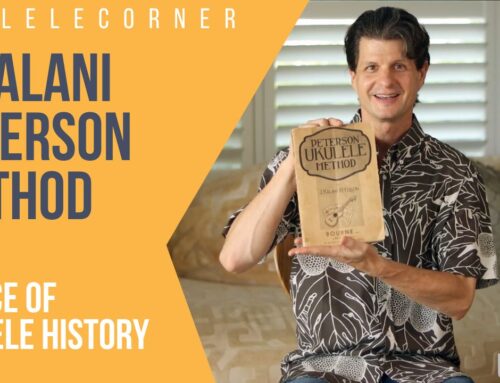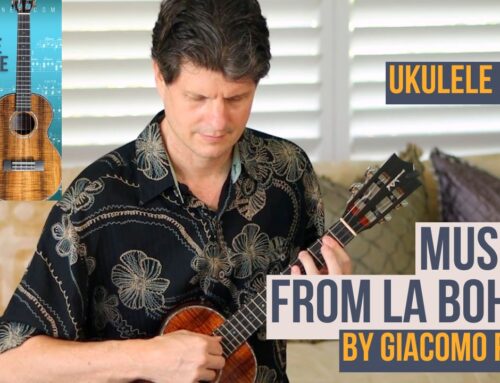Improvisation on Baritone Ukulele
Check out this cool improvisation on baritone ukulele from Jeff Peterson of Ukulele Corner.
Improvisation = Freedom?
Improvisation can be a scary thing to some musicians. Faced with the freedom of infinite possibilities, how do you come up with something that sounds even halfway musical? The key is to understand musical language so well that you can be free with it.
Think about how difficult it may have been at first when you were learning grammar in school. Maybe you struggled with conjugating your verbs or with sentence structure. But those are all things most of us no longer think about anymore. We just speak. And not only that, we can speak in a way that allows us to be free with how we use language. We’re essentially always improvising when we speak language.
Musical language is no different. We learn musical syntax, grammar, and vocabulary so well that we no longer have to think about it. Instead, we’re free to play with musical language in a way that is like second nature.
Improvisation = Structure?
And so the best improvisers are always working with a base structure, usually a familiar chord progression. If you listen to Jeff’s improvisation, he is following the same pattern basically all the way throughout:
E minor / B Major / E minor / A Major / A minor / C minor
Of course Jeff is also using what are called “substitutions,” closely related harmonies that sound and function in the same or a similar way, but with a slightly different color. That allows him to be free with the underlying structure, constantly changing it as he adds new lines on top.
Why not both?
At the end of the day, improvisation is neither pure structure nor infinite possibility. It’s at its best when you allow your musical language (in this case Brazilian jazz) to be so innate that you can be free with that underlying structure.
***
Want to learn how to apply these principles to your own playing? Join Ukulele Corner Academy today so you can beef up your musical language!




Leave A Comment